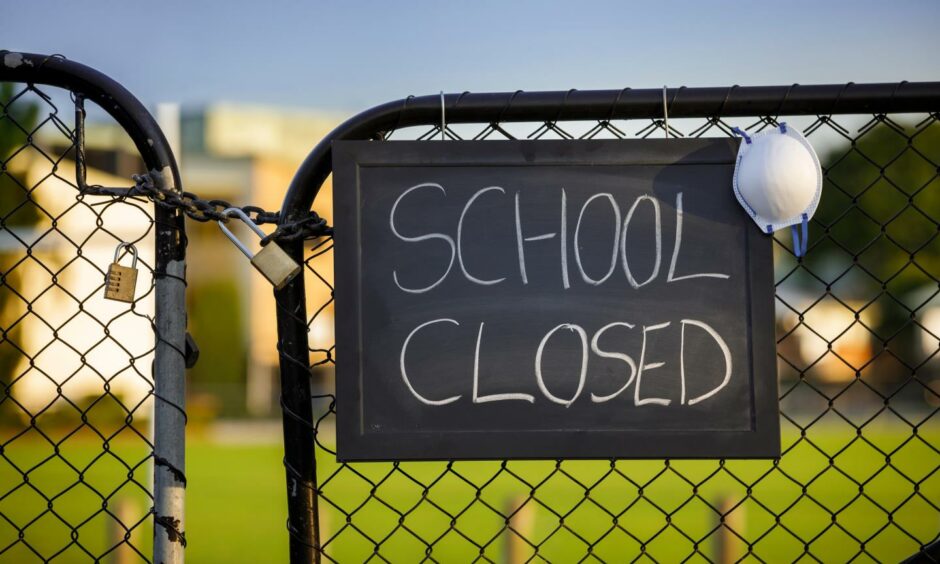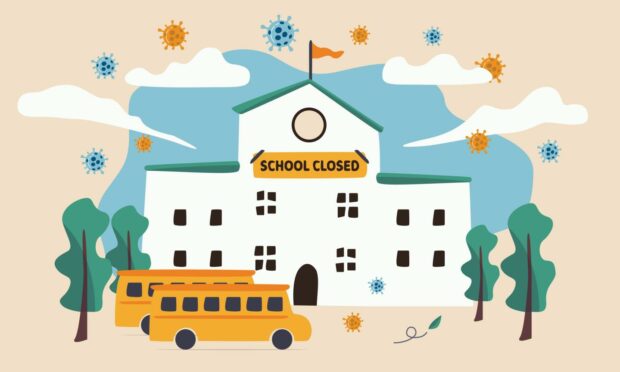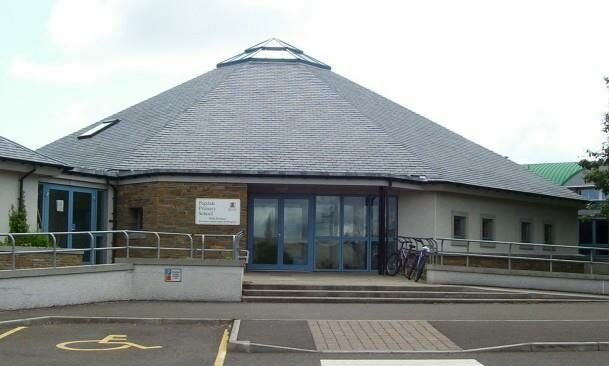When and why do councils decide a school should be closed?
It depends on where you live.
This month, hundreds of children were out of school due to partial closures, the most since lockdowns ended in the spring.
We spoke to the decision-makers in every council about what goes into these tough calls.
Who decides to close the school?
Head teachers work with the council and public health officials before deciding to close.
But council leadership plays a different role in each local authority.

In the Western Isles, Shetland and even Aberdeen City, the chief education officer is often directly involved in the ultimate decision to close a school.
In Orkney, a dedicated Incident Management Team made up of council and NHS experts makes the call.
Meanwhile, in Highland Council, with more than 200 schools and nurseries in operation, head teachers carry most of the responsibility to decide when school is closed. They work with area education managers, local council and public health officials to decide when to close their school.
Decisions are so delegated in the region, that a Highland spokesperson said the council doesn’t keep a central record of school closures.
Why are schools closing?
Council officials usually attribute Covid-19 closures to staff shortages or an outbreak. The NHS defines an outbreak as two or more positive cases on campus.
But it doesn’t necessarily mean the virus is spreading at school. Students and staff members might bring the virus in from the community or, as one expert recently suggested, catch it on the school bus.
In Highland, Orkney and the Western Isles, where schools or nurseries recently closed, only a few class levels were cancelled in most instances. This was because teachers in those classes were at home isolating, and the schools couldn’t find cover quickly enough.
Why only close certain classes?
Councils said decision-makers try to strike a balance between public safety and education needs. Where possible, they close only part of a school and allow other students to continue learning uninterrupted.
Orkney Islands Council and NHS Public Health Orkney recently explained their rationale to parents.
“If we were simply to close a school when there are cases of Covid-19, we may find ourselves in a position whereby schools are rarely open.
“This would be incredibly damaging for pupils and students who have already missed out on so much on their educational and social well-being journey.”
School closed – so what next?
If your child’s school is ever closed, you should hear directly from the head teacher.
Many schools will also post updates to their Facebook page or other social media accounts.
The Scottish Government requires local authorities to inform parents about any school closure as soon as possible. A government spokesperson also said that schools are legally required to provide 190 days of instruction.
More from the Schools & Family team
Big changes for Stonehaven and Fraserburgh in Aberdeenshire schools investment
Free childcare in Scotland: All you need to know about nurseries in your local area
We know our rights: Kindergarten kids teach Children’s Commissioner an outdoor lesson

